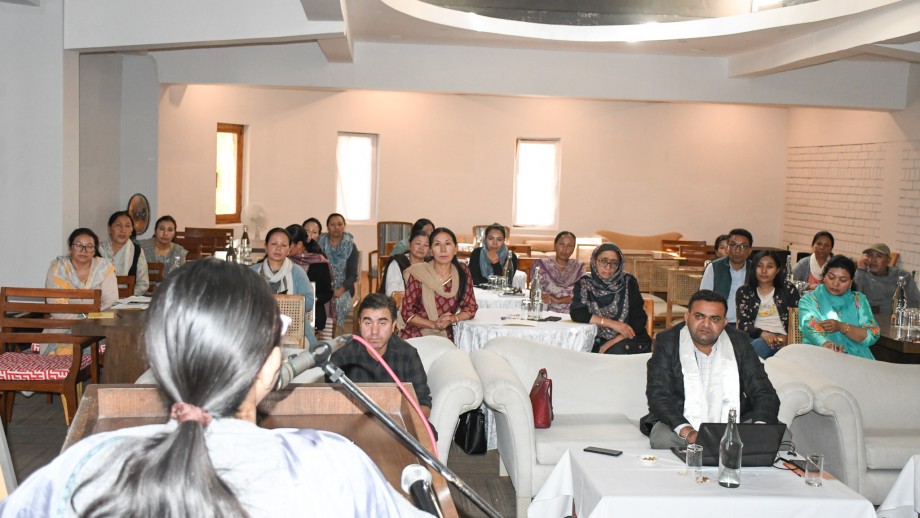Weeklong workshop on Poshan tracker app for field functionaries commences

A week-long workshop on the Poshan Tracker application organised by the Directorate of Social &Tribal Welfare, UT Ladakh in collaboration with the Ministry of Women and Child Development, Government of India commenced on September 7 in Leh.
The initiative aims to empower field functionaries with advanced tools to enhance the nutritional well-being of the local community.
State Coordinator, Jammu, Kashmir and Ladakh, Ankush Sharma emphasized the importance of this initiative, stating that the Poshan Tracker application will be a game-changer in our efforts to combat malnutrition and improve the health of women and children in Leh district.
He said that it is very important for supervisors to be tech-savvy because the future of government functionaries depends on technology. Also, he added that the supervisor has a big responsibility and requested all the functionaries to update accurate data on the portal as this would help them to frame the policies.
Earlier, Director, Social and Tribal Welfare, UT Ladakh, Tashi Dolma added that the Poshan Tracker application is designed to streamline the tracking and reporting of nutritional interventions and beneficiaries' progress. She urged all the field functionaries to clear their doubts during the workshop. Also, requested the District Program Officer, Leh, and CDPOs to monitor it closely on a daily basis.
Additionally, she informed that the workshop will be conducted at all 13 projects of UT Ladakh for Anganwadi workers.
District Program Officer, Leh, Sonam Nurboo added that everything will be tracked by the Poshan App. He urged the participants to take benefit from the workshop and requested them to update all the data on a daily basis on the portal. He informed that the workshop will include hands-on training sessions, interactive discussions, and practical exercises to ensure that field functionaries become proficient in using the Poshan Tracker application.
The workshop was attended by CDPOs, Supervisors, and Anganwadi workers.





